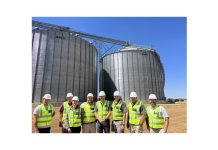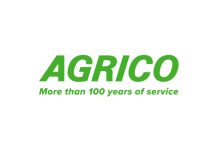 Gideon Hefer is the managing director of InteliGro. He serves on the board of CropLife SA and has a real commitment to the responsible role that the expert, trained crop advisor has in South African agriculture.
Gideon Hefer is the managing director of InteliGro. He serves on the board of CropLife SA and has a real commitment to the responsible role that the expert, trained crop advisor has in South African agriculture.
He answered a few questions on this topic:
1. What is the distinguishing factor of a well-trained crop advisor and why is it important?
- A well-trained crop advisor can contribute to the grower’s increased profit per hectare, reduced risks and greater success by being knowledgeable on both crops and products, as well as introducing new technology to the grower.
- A responsible crop advisor and the company to which he/she is connected, ensure that the grower is in the right position to protect the crop. Incorrect products or a faulty spraying programme can result in a substantial financial loss for the grower.
- The question is therefore actually not what the price is for using a trained crop advisor, but what the cost is if something goes wrong with your crops.
2. What are the responsibilities of the crop advisor?
- He/she understands, among other things, the interaction between crop, climate and soil and bases the recommendation on a combination of these factors.
- Physical inspections in the field are important and the crop advisor should also help the grower to get his/her own monitoring system up to a good standard as part of integrated crop management practices.
- The crop advisor and his/her agrochemical company must be progressive, professional and informed.
3. Why does the grower need the best partner, with a deep knowledge of agriculture?
- Crop and product training are indispensable in the setting up of a crop advisor.
- CropLife SA’s CPD programme provides a foundation for crop advisors. However, this is only a start.
- Apart from the training that crop advisors receive from their companies and suppliers, self-study and wider exposure are very important to function as an expert at farm level.
4. Why must the company behind your crop advisor be strong, known and knowledgeable?
- It is important that a crop advisor is affiliated to a well-known agrochemical distributor. The company, together with its suppliers, is responsible for providing regular training so that crop advisors remain at the forefront of knowledge, information and technology.
- Progressive agrochemical distributors also offer programmes that contribute to sustainable agriculture and good stewardship.
5. Who/what benefits from a responsible, trained crop advisor?
- Apart from the grower, who benefits financially from good programmes and recommendations, all stakeholders benefit from sustainable farming.
- Stewardship begins long before the product is delivered to the farm.
- There are many initiatives to promote the responsible use of agricultural chemicals:
- Training for farm workers on the safe handling of products
- Calibration of spray pumps
- Handling of empty cans and expired product
- Measurement of effective spray deposition
- We work alongside nature, only borrowing it from our future generations – we have to deal with it responsibly.
InteliGro is stepping up to meet the challenges growers face with our certified crop advisor programme (CCA), and we ensure that our crop advisors receive continuous training in various relevant subjects. We understand that it all starts on the farm: We are part of every phase in crop production, and together with the grower, we find effective solutions.
For more information visit www.inteligro.co.za.














